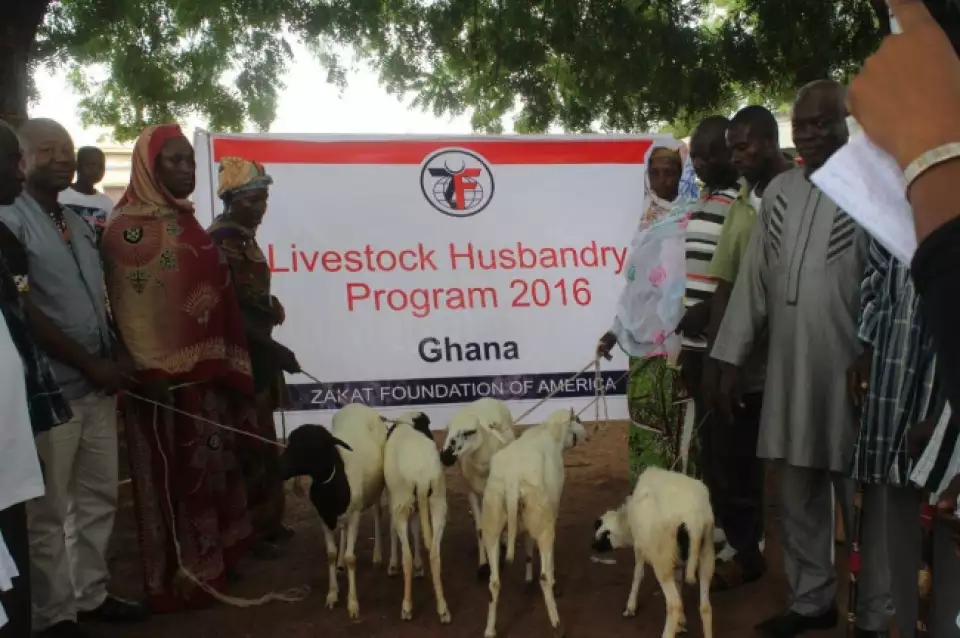A Chicago based non-governmental organisation, Zakat Foundation (Zakat Foundation of America) of America has launched a program dubbed ‘Livestock Husbandry’ aimed at supporting the poor to earn a living.
Under the programme, poor households would be supported with goats and sheep to rear as an income generating activity to improve on their living conditions.
It is to empower the beneficiaries economically to offer better care to their families and dependents and help alleviate them from poverty.
The program, which, will run for three years, will be operational in five communities in five districts in Ghana and would be extended to neighbouring countries such as Burkina Faso and Cote d’Ivoire where similar vulnerable communities would benefit from the program.
Already, Malian refugees living in Burkina Faso are benefiting from a similar facility where they are earning from rearing animals donated to them by the foundation.
At the launch of the programme in Bole on Tuesday, the Programme Manager of Zakat Foundation of America, Mr Habib Abubakar, named the beneficiary districts as Bole, Savelugu Nanton and Bindouri, all in the Northern Region; Builsa South in the Upper East and Daffiama Bussie Issa in the Upper West regions respectively.
He said the beneficiary households were selected using the Resiliency in Northern Ghana (RING-USAID) approach based on such criteria as poverty level, accessibility to water resources, household with children less than five years, women in reproductive age, distance from major market, nature of the dwelling place and the ability to provide three square meals a day.
The selected communities are Mandari, Chahi Yapalsi, Nabori /Manga, Fumbisi/Kanjarg and Kojopkeri.
In all a total of 22 households would be selected from each community bringing the total number of the households that would benefit from the programme to 110.
According to Mr Abubakar, each community would be given a total of 42 ewe and two rams.
“By estimation, if one ram is capable of crossing 21 ewe in a year, the returns from breeding in a year should be 84 lambs in one community in a district,” he said.
He said the beneficiary households would be given training by veterinary officers on how to take proper care of the animals to ensure that they did not contract any disease.
He said based on the success of the programme, it would be scaled up to cover more communities.
The District Chief Executive Officer of Bole, Mr James Jaaga, praised the foundation for its tremendous assistance to the people of the district.
He said the foundation has been instrumental in the provision of potable water, education materials and the provision of educational infrastructure and other supports all aimed at improving the living conditions of the people.
He said even though the government was doing its best to improve on the living the standard of the people, it would need the assistance from its development partners to ensure that everyone was covered.
He thus commended the foundation for the program which he said would greatly help the beneficiaries.







